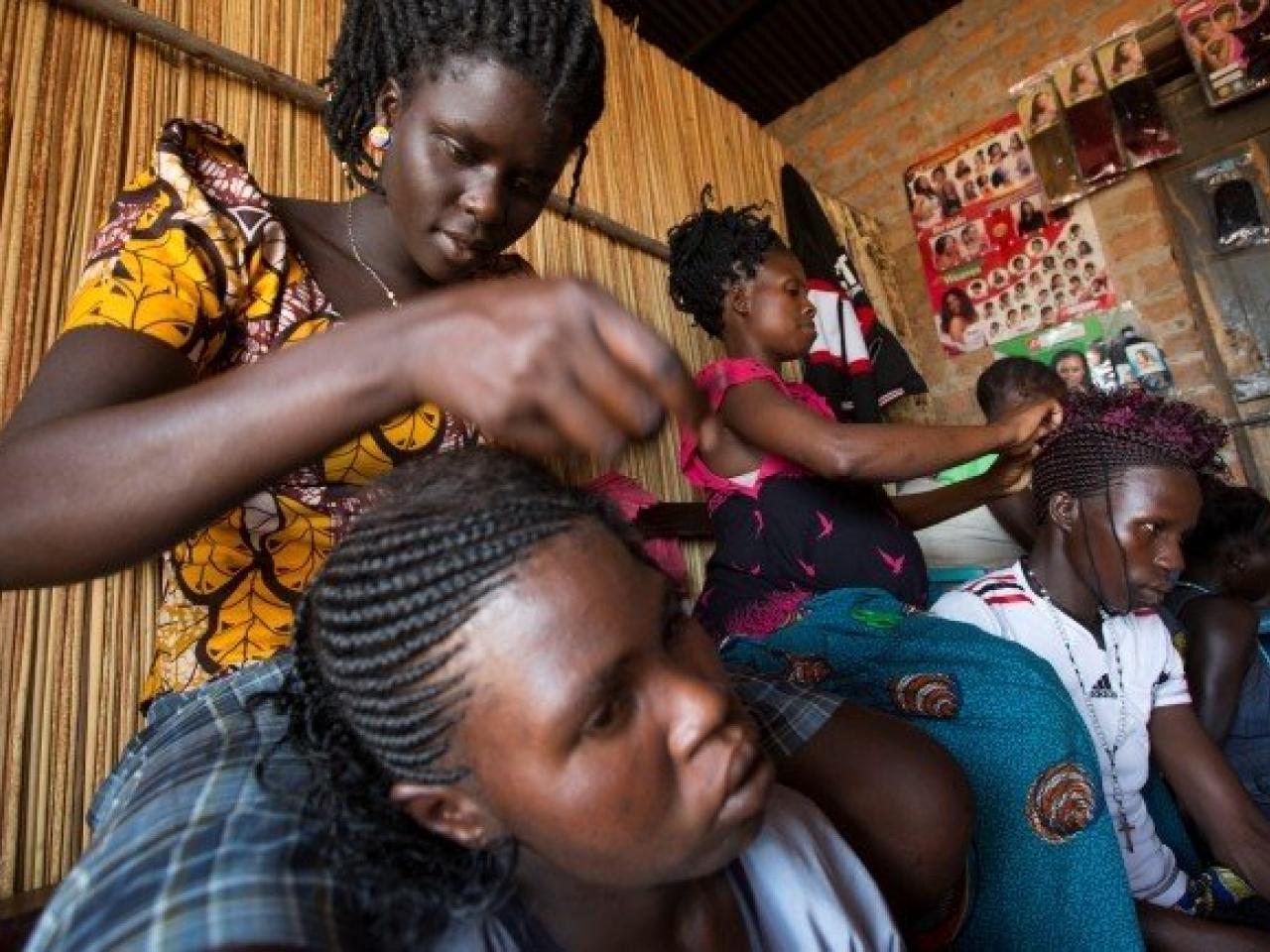A generation of girls is saying 'no' to child marriage
Fifteen-year-old Tenin* still remembers the day, two years ago, when she raised her hand in class. In a soft clear voice, she told her teacher and her classmates: “Go see my father: they intend to give me in marriage.” In a country where nearly half of the girls are married before their eighteenth birthday, it was a courageous act of self-defence.
It was courage based on knowledge. The students in Kemeni town, in Segou, had heard talk that some adults would support them. Tenin had heard that the principal of the school did not support child marriage. The busy school stands in the centre of the town, a half dozen classrooms on either side of playgrounds, with the principal’s house beside it. Tenin comes from a small village of just two farming families outside Kemeni. One day, she overheard her mother discussing marriage arrangements.
Despite her shock she remained silent, giving no sign that she knew until she was at school. She believed that there, help would come if she asked for it. “I didn’t want to get married,” she explains. “I wanted to continue going to school.”
That evening, the principal of the school went immediately with Tenin to her family home. Tenin was scared, but her bravery paid off. Thanks to an explanation of the harms of early marriage, Tenin's parents changed their minds. When they realized that it could harm their daughter and that key elders in the village would support their change of heart, the marriage was cancelled.
It is common for parents in Mali to believe that an early marriage is the best insurance for their daughter's future. An early marriage is seen as preventing pregnancy outside of wedlock, guaranteeing a girl a secure place in society and allowing many children to be born. Socially, culturally and financially, it can be seen as a sign of good parenting to arrange an early marriage for one’s daughter. Marriage also comes with the promise of dowry, which can be a consideration for particularly vulnerable families. But despite the weight of cultural and social norms, when Tenin's parents understood that there were negative health consequences to early marriage and early pregnancy, they changed their mind. If the school really was the best option for her daughter, in school she would stay.
Early marriage can severely affect the mental and physical health of girls, and adolescent girls are at increased risk of complications during childbirth and pregnancy. Married girls almost automatically drop out of school to take up new responsibilities in the home and are usually separated from their family, friends and communities. Their potential is cut short. But Tenin was not the first, nor the last, girl to raise her voice. In fact, in her own school it has almost become a routine event.
In a classroom nearby, a girl named Awa* had done the same thing. For Awa, the path was not as straightforward or swift as Tenin's. Her brother’s wife had become a close friend and told her in secret that a marriage was being arranged. "Your mother is talking about a marriage for you,” she said. “But you are very young, so pay attention. Marriage is not for children." Bolder than Tenin, Awa’s first step was to speak to her father directly, saying she wanted to stay in school. When he did not change his mind, she went to ask the principal of the school for help. When the principal could not change her father's mind, the principal went to the village Committee for the Prevention of Early Marriage.
The UNICEF-supported committees are made up of community, educational, religious, women, youth and elderly leaders. Their opinions carry weight. The committees, which focus on early marriage and female genital mutilation (FGM), are part of a long-term strategy to embed change in communities. Elders and community leaders are offered training on the benefits of ending child marriage and ensuring girls are educated, healthy and can positively contribute to their families and communities as adults. Armed with evidence and information, committee members use their positions to persuade others.
In Kemeni, the committee went to Awa's father. The local religious leader explained that early marriage was not required by Islam, the school principal explained the advantages for the family of educating girls, the village chief showed how the community would benefit. All of them explained how later marriage can mean better health for women and their children. Awa's father finally agreed and the marriage was cancelled.
"We work hard on awareness-raising on harmful practices," explains Birama Ouologuem, the committee’s president. "But behaviour change takes a lot of time. Thanks to the involvement of the village chief, village leaders, traditional leaders and religious leaders, we believe that one day early marriage will be completely abandoned in our community. It creates a lot of health problems for the women and girls here."
The public support of community leaders for delaying marriage gives many parents an option they may not have considered.
Spotlight Initiative will further build on UNICEF’s longstanding work on girls’ rights in Mali by greatly expanding community-based engagement for changing attitudes and behaviours on child marriage.
For a long time, Awa was afraid there might be a new arrangement, a new fiancé. But four years later, no one has renewed talk of marriage. Her school-mate Tenin is also still in school. Both still smile broadly when asked about the adults who helped them. The sister-in-law who warned Awa, the principal who helped them both, the committee that changed their parents’ minds. Both girls now intend to follow their example and give back, as a teacher and as a doctor. And both stand now as examples of what can happen when the courage of girls is answered by supportive adults.
*Some names have been changed
By Anne Kennedy. Original article published by UNICEF.

